German general menu
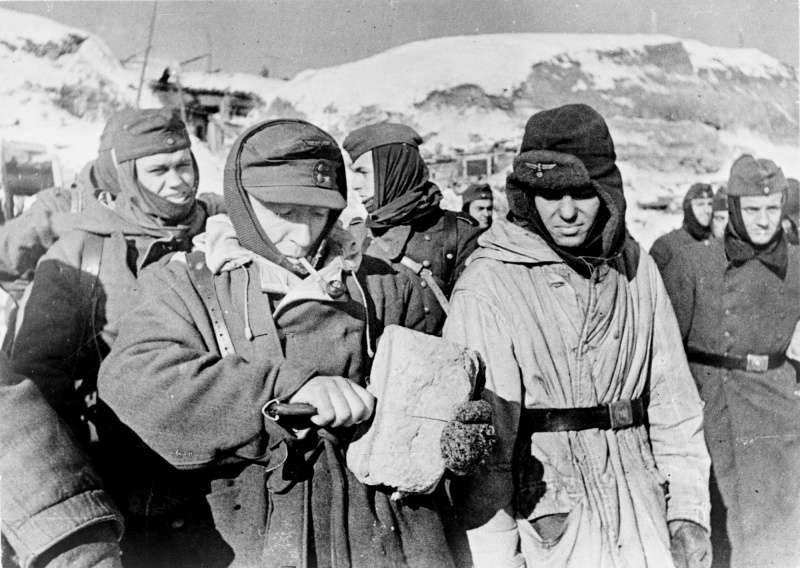
There is much evidence of inhuman attitudes towards Soviet prisoners of war. But what about the German prisoners of war? What did they eat, what were they entitled to, how did their food supply change in the war and post-war years? And then it turned out amazing facts, confirmed by archival documents.
Interestingly, the catering standards for prisoners were developed by the staff of the Office of Prisoners of War and internees long before the outbreak of hostilities, and therefore telegrams about this were sent to the troops on the second day of the war.
The first batch of captured German prisoners came under the protection of the 229-th regiment of the NKVD already 24 June 1941 of the year.
In July, the 1941 of the year was followed by a reduction in the rate of issue of bread to 500 grams per day. Depending on the situation at the front and in the rear, ration of prisoners in the middle of 1942 was reduced to 400 grams of bread per day. It was the lowest power bar, which then never went down.
It was especially difficult to transfer and contain huge numbers of prisoners after the Battle of Stalingrad. Most could not get to the army collection points of prisoners. There was no experience of working with such a huge number of prisoners of war at the time of the NKVD troops.
After Stalingrad in the Ivanovo region, a special camp was created for generals. It was located in the village of Cherntsy (227 kilometers to Moscow), in a former old manor owned by Sofia Dedlov.
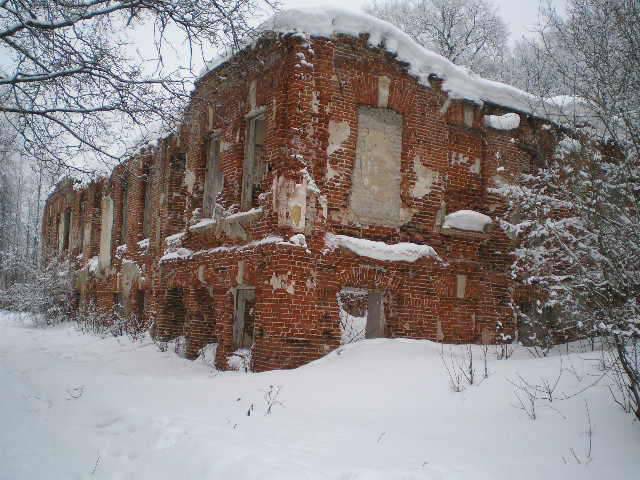
Paulus and 22 of German generals were brought here. Their daily routine was completely different than that of ordinary prisoners. Captive Italians prepared by serving white bread, butter, and boiled meat. Generals could drink beer only on holidays. The building of the former famous camp №48 is still preserved. Alley too. Preserved and dining.
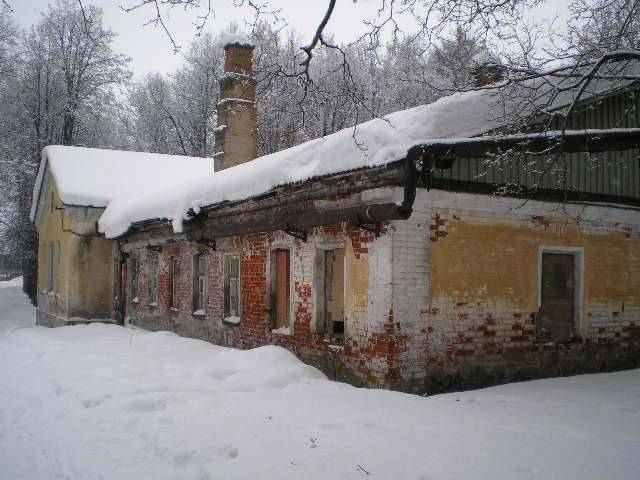
As the military victories and the growth of the economic opportunities of the country increased, the nutritional standards were revised upwards. April 9 The NKVD, on the basis of a decision of the USSR State Defense Committee, introduced five new catering standards for the contingent of camps: for those kept in the camps and at the NKVD reception centers; for patients with dystrophy; for general hospital patients; for generals; for officers.
But most of all, German prisoners of war received bread: the rate of their allowances increased significantly, now they were given not 400 grams of bread per day, but more than half a kilogram - 600 grams.
However, the bread was also issued in different ways, depending on the working conditions.
At the same time, the additional ration of bread has increased significantly. Those who fulfilled hard work rates up to 50 percent now received 650 grams of bread per day, from 50 to 80 percent - 850 grams and more than 100 percent - one kilogram.
The bread rates for those employed in other jobs ranged from 500 to 700 grams. For the weakened former enemy soldiers, the basic nutritional rate, increased by 25 percent, was also envisaged, including bread. The issuance of a weakened diet allowed them to be put on their feet more quickly and subsequently used to restore the country's national economy.
And the power of prisoners who worked on hard physical work, also significantly increased by more than 25 percent.
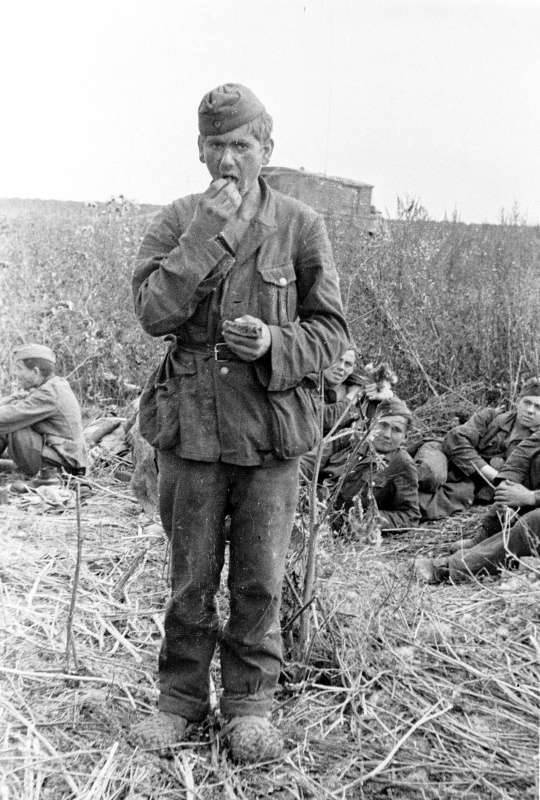
Since July, 1943, the prisoners receiving food at the basic rate, began to additionally issue 120 grams of fish per day. At the same time, the nutrition of the weak and sick was improved. Each camp was given an individual number of additional food rations, which was determined by information from the camps about the physical condition of the contingent for the previous month. In this regard, the number of rations supplied did not always correspond to the number of those who need increased nutrition by this time. However, the camp did not have the right to independently change the numbers set above.
And this, mind you, happens in a terribly hungry time for the country. And it cannot be compared with the conditions in which our prisoners of war were kept, receiving approximately 894,5 kcal per day against 2533 kcal per day (the Germans received so much under the norms).
The prisoners were also heavily treated. By the end of 1943, captured enemy troops served the 31 Hospital of the People's Commissariat of Health on the 23 200 beds. The number of places in hospitals was lower than the need, especially in the first half of 1943. Special hospitals felt an acute shortage of medical personnel. As of 1 September 1943, only 47,7 percent of Soviet doctors of the required amount worked in them. However, by the end of the year, the staffing level of medical personnel increased to 82 percent. Nekomplekt compensated for by attracting to the work of doctors from among the prisoners of war.
Successful treatment was also largely dependent on the availability of special medical equipment in hospitals, which at that time was far from being everywhere. According to archival sources, only 31 X-ray, 17 physiotherapy and 21 dental offices, 22 laboratory worked in 31 special hospital.
Since April, 1943, the medical supply of the camps was not carried out through the local bodies of the People's Commissariat of Health, which themselves experienced an acute shortage of medicines, but by the sanitary departments of military districts and the health departments of the fronts. This has improved the situation with the provision of medical facilities in the camps.
Also in 1943, the issues of the property supply of prisoners of war were streamlined. In March 1943, the NKVD of the USSR determined that the prisoners as they wear out their uniforms should be provided at the expense of the captured and specially allocated property. It was strictly forbidden to release the planned military property for their needs without the permission of the Military Supply Department of the NKVD.
For the repair of uniforms and shoes in each camp organized by the appropriate capacity workshops. As a repairing material, trophy that had become useless as well as troop property unsuitable for repairing Red Army clothes was used. The necessary tools for the workshops were made on site, and if this was not possible, they were released from the district warehouses. Bedding from the number of used relied only for hospitalized patients, were released to the camps at the rate of 10 percent of the number of contingent at the rate: one blanket, one sheet, one lower and upper pillowcase, one mattress pillowcase.
Thus, as the situation improved on the Soviet-German front, the increasing role of prisoners of war as a labor force in 1943, the supply of former enemy soldiers gradually improved. This trend was observed in the subsequent war and postwar years.
Approximately three months after the Victory, in August 1945, the first decree was issued on the release of 608 000 German prisoners of war. Private soldiers and non-commissioned officers, patients, disabled people, as well as those who agreed to live in the territory of the German Democratic Republic were sent to Germany. Also, first of all, the French and Romanians were to be released. On the road they were given a dry ration, designed for several days of stay on the road. It helped them get home.
Interestingly, when in the GDR in 1953, the percentage rates of production were raised by 10 by a percentage, part of the former prisoners of war gathered for a spontaneous strike near the building of the Central Committee of the SED. They were totally against the rules. Nearby were three cars with radio transmission towers. The furious mob overturned them - the female announcer died. From the mouths of former prisoners of war, furious cries and insults were heard against their leadership, not a single word was said against the Soviet Union.
Three years later, in the 1948 year, they began to release those who had the highest military rank. 11 German generals got their freedom.
The most curious thing happened in 1949, when it became clear that prisoners of war in the camps are not kept, and trying to peacefully settle down to work in the Soviet collective farms and state farms, can freely receive medical care in ordinary Soviet hospitals. And then the Minister of the Interior gives the order: to bring order to the prisoners, who could easily marry Soviet citizens. It turns out that such cases have been.
It is curious that, unlike the German inhabitants, who covered their noses from the stinking smell that came from the Soviet prisoners of war, Russian women showed great pity and the men too. Shared and a shag, and a piece of bread. Over the years, many German prisoners of war were able to visit the place of their imprisonment and remembered this time with a mixed feeling of gratitude. These words they expressed to everyone. But our prisoners of war, who had been in their places of detention, could only tell about the torture, mass extermination of Soviet soldiers, sometimes burned alive in the furnaces of Auschwitz and Mauthausen.
After the war, the nutritional standards were revised again: now, for an excellent work assignment, the worker could get an extra 100 grams of bread, which automatically gave the right to purchase an additional pack of fringe.
It was possible to buy at the expense of the money that was credited from 25 August 1942 to each prisoner officer and soldier according to Directive Deputy Commissar of Internal Affairs No. 353. Something I did not hear about the fact that the Germans assigned marks to our prisoners of war. But we did it: there were norms of salary, which entered the personal account of each prisoner. For example, a private received 7 rubles a month, the officer’s salary could reach 30 rubles. The highest salary - 100 rubles per month - was received by foremen and foremen, the brigades of which fulfilled the plan by 100 percent.
1950 announced the completion of repatriation.
Some of the ex-prisoners will even be able to write books about their incarceration. In particular, one of them complained about the legendary prison dish - fish soup. The smell of the soup was fishy, there were heads and tails, but the flesh itself was not found. This fact depressed the former German prisoner and in his memoirs he sadly exclaims and complains about the hapless chefs who did not seek to diversify the menu.
It was interesting to read the memoirs of the composer Hans Martin, who was in the camp of the city of Atkarsk. Hans began the symphony in honor of this place on the eve of Catholic Christmas in 1944. The musical piece was performed by the choir.
Usually, the prisoners began their day with a wake-up and a decent breakfast: they were given soup and bread, and at lunch porridge cooked from millet groats or potatoes (and this, too, it turns out, was porridge). And in some camps, the prisoners tried to feed them more. This is evidenced by the results of an audit conducted in one of the camps in the Saratov region. As a result, it turned out that porridge prisoners ate two times more than they are supposed to by the standards.
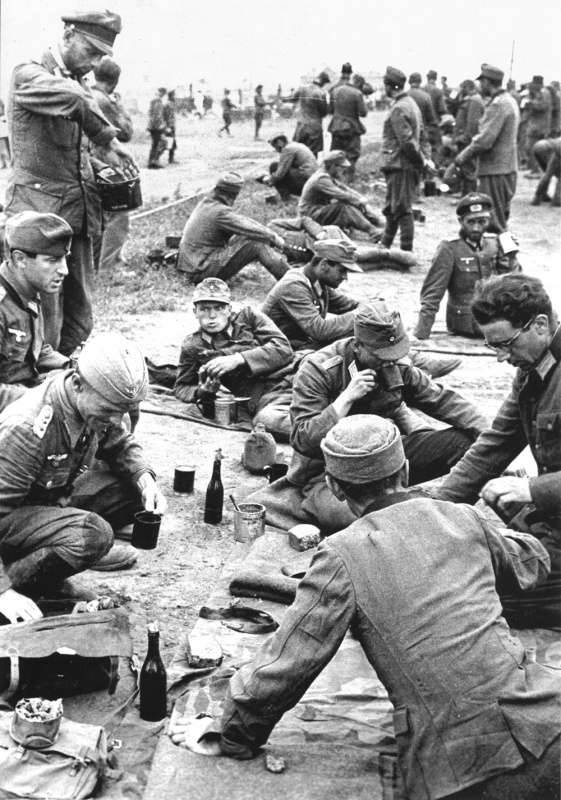
It is a well-known fact that the top officials of the German army who were captured enjoyed almost all the blessings of life. This caused the legitimate indignation of the ordinary soldier, who was forced to observe in silence, for example, several officers were joyfully rolling on the ice when the river that flows within their camp froze. Then the German private will write about this outrageous case in his memoirs.
However, such conditions were not deceived by some privileged prisoners of war, and they made numerous escapes. This made the German pilot Hartmann famous, whose plane was shot down by a successful shot of Soviet anti-aircraft gunners, and the German ace landed on his parachute directly into the hands of Russian soldiers. He was captured, but the cunning Hartmann managed to pretend to be seriously wounded and thus put down the vigilance of his escorts. He was able to escape. But he was quickly found and placed in a camp located not far from the town of Shakhty of the Rostov Region. There, to the violent prisoner, they looked narrowly. But did not see. The pilot was able to raise a riot, seize the camp administration with other prisoners of war and put forward an ultimatum. One of his points concerned the increase and improvement of food, as well as the creation of a special commission to investigate violations of prisoners' rights. But in Rostov-on-Don, instead of food, a group of machine gunners was sent, which pacified the prisoners.
Information